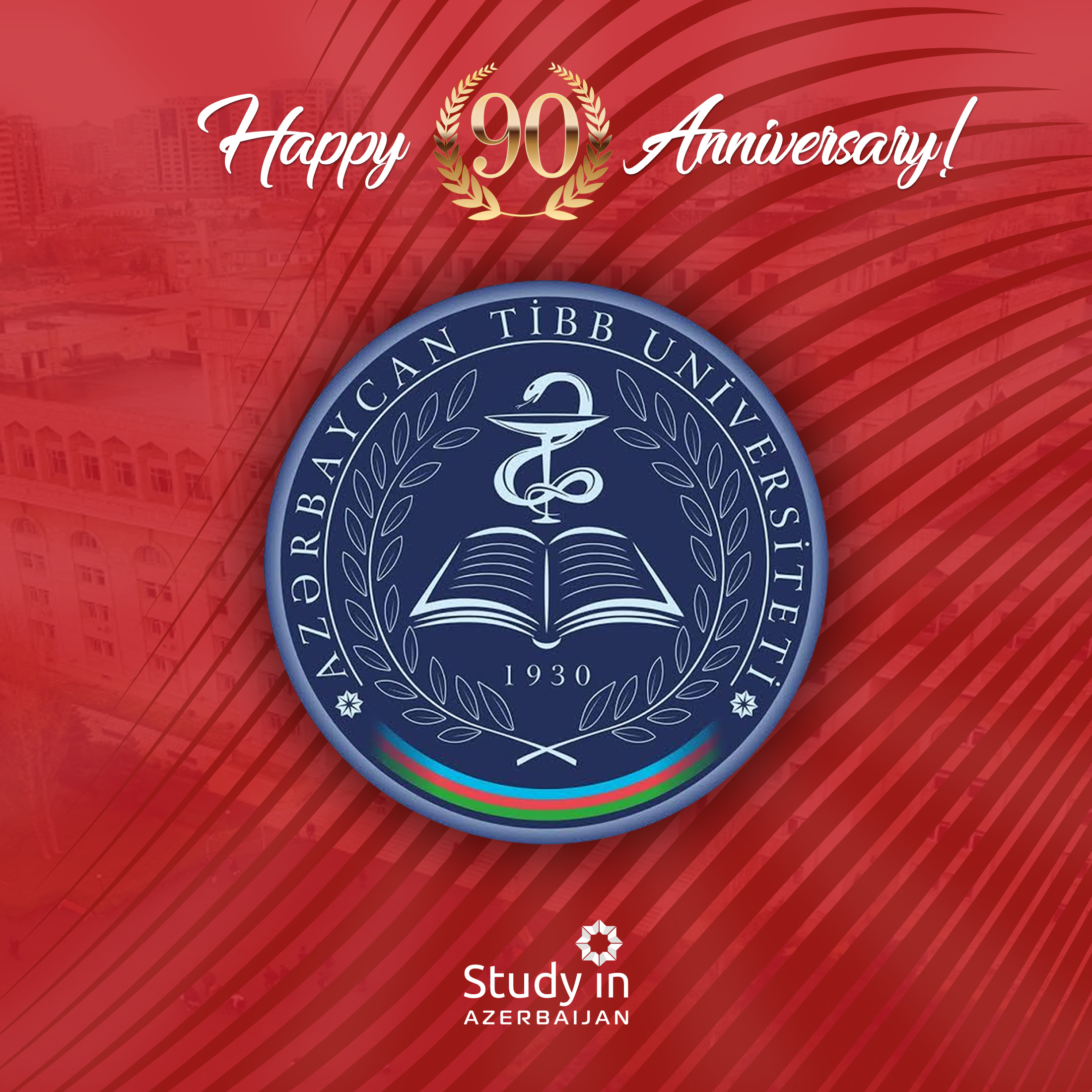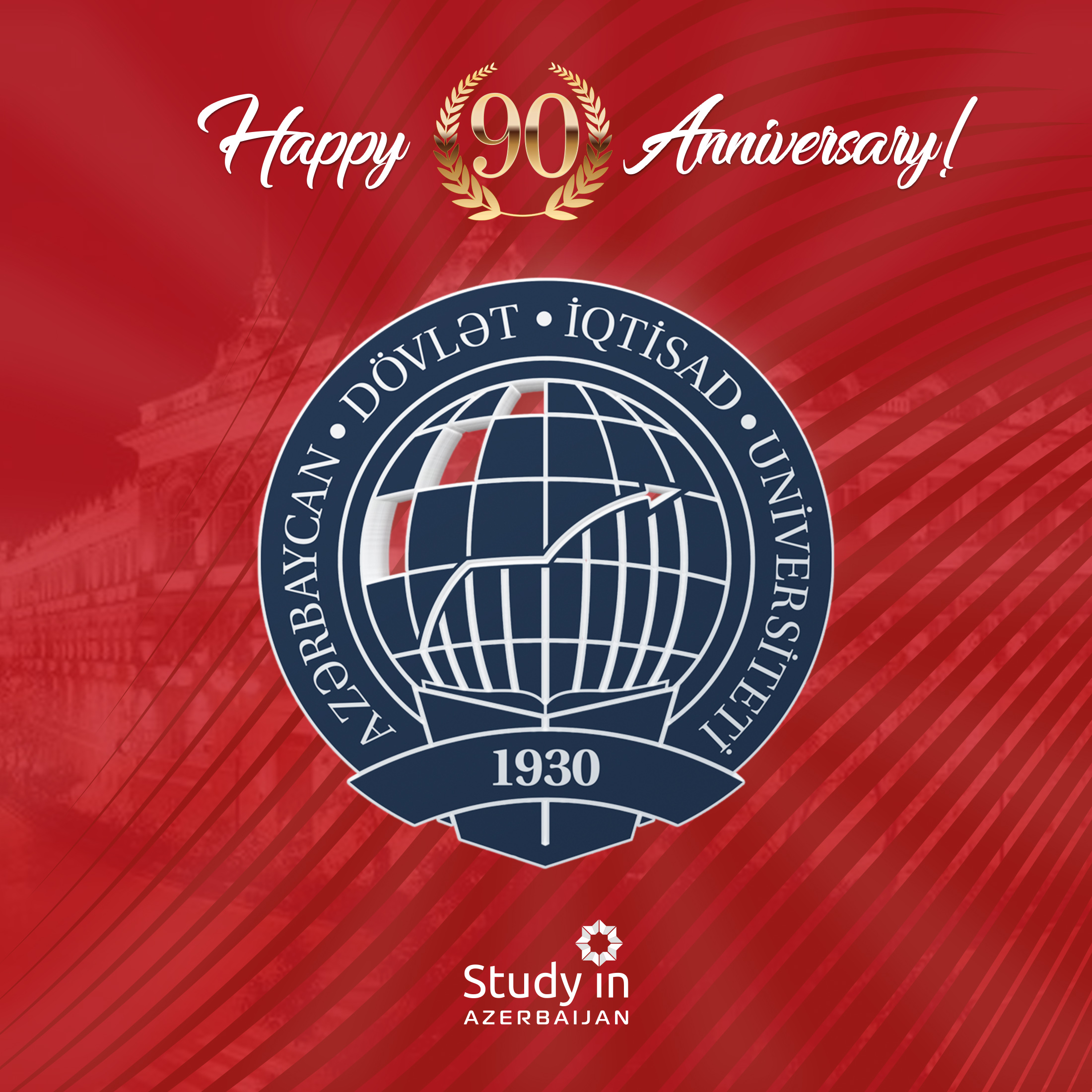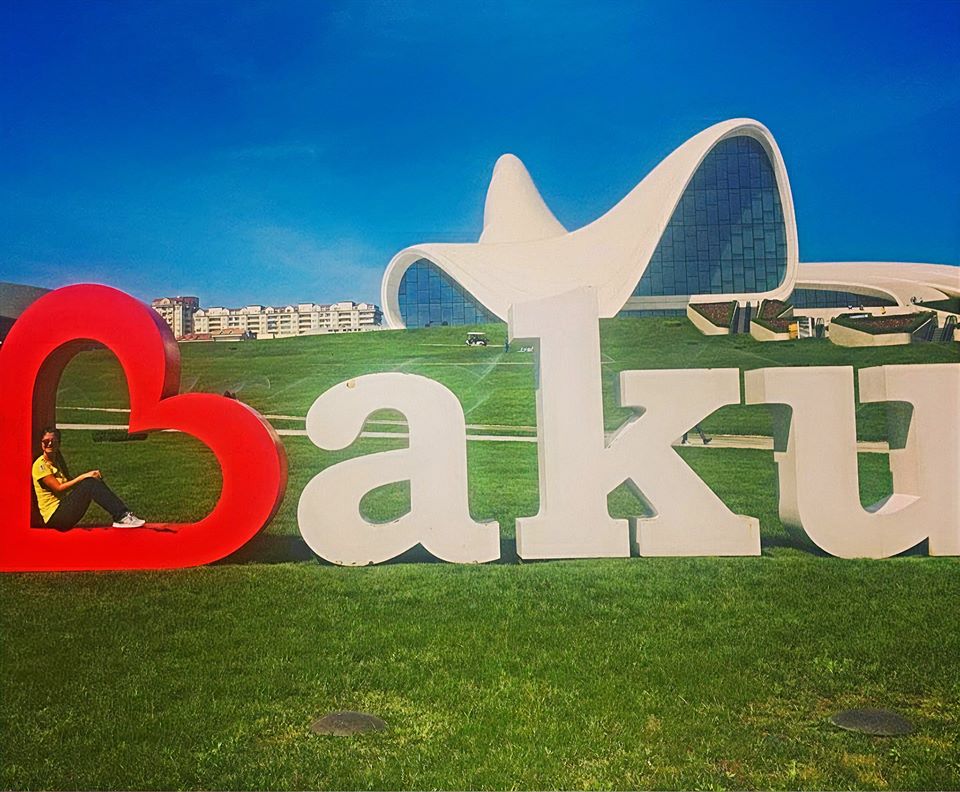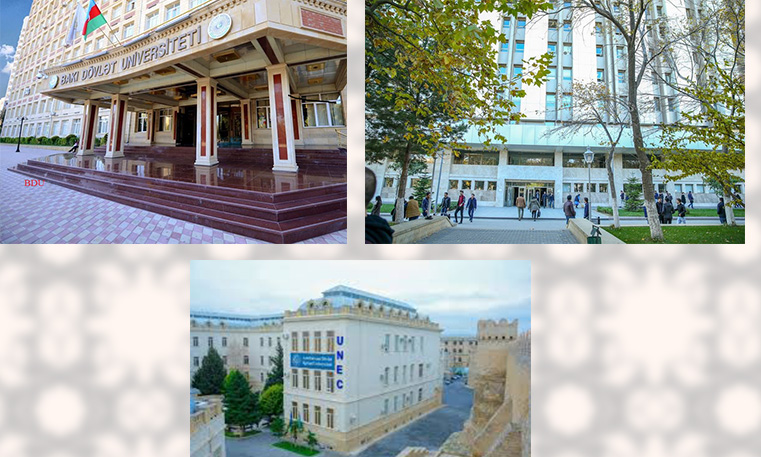
Azerbaijan Medical University (AMU) was founded in 1930 and the university celebrities its 90th anniversary. AMU is a scientific center, uniting thousands of students around the world, preparing doctors-professionals, specialists, and scientists. Azerbaijan Medical University plays a significant role in the education of international students. The admission of foreign students to AMU has been carried out since 1968. Annually hundreds of students from different countries of the world apply for admission to Azerbaijan Medical University. Currently, more than 2000 students from 35 countries of the world study at the university. The languages of instruction are Azerbaijani, Russian, and English. Foreign students can choose one of the faculties in university enrolment: preventive medicine, dentistry, pharmaceutical. Based on the activity in the field of international relations, the university is a member of the Caucasus University Association, Turkic University Union, and the Black Sea Universities Network. Students of the university are active members of the International Federation of Medical Students Associations (IFMSA). We take great pleasure in congratulating staff, students and alumni of Azerbaijan Medical University on this auspicious 90th-anniversary celebration.
Show more
June 19, 2020, marks the 90th anniversary of the establishment of Azerbaijan State University of Economics (UNEC). UNEC has exceptional services in training highly qualified economists. UNEC has turned into the centre of staff–training on industry, trade, finance, statistics, tax policy, marketing, management and research center. Speaking at the University’s 70th anniversary, National Leader Heydar Aliyev set promotion of the country’s economy, need for modern young people who had gained world experience, knowing foreign languages in order to join the economic system as the main task before a staff. These tasks form the basis of the UNEC’s development strategy and are currently being successfully implemented. We are confident that UNEC will continue to play a significant role in education not only for local students but also for the foreigners. We take great pleasure in congratulating staff, students and alumni of Azerbaijan State University of Economics (UNEC) on this auspicious 90th-anniversary celebration.
Show more
Alejandra Garcia Duran, an international student from Colombia who studies at ADA University with the program of Master of Public Administration shares her main challenges about the coronavirus and a student life in quarantine days. 1. When and how did you receive the news about coronavirus? What was your first reaction? First time I heard about the coronavirus was in January when my mother wrote to me from Colombia concerned because of this virus that was spreading from China and she was just very worried. In the beginning, I was not concerned at all I thought it was just something that was going to stay in China. I really got anxious by February. 2. Was it your decision to stay in Azerbaijan during the pandemic time or it was too late to leave the country? (if yes, why?) When I decided to leave the country it was too late and flights to Colombia were closed because the government decided to stop receiving any international flights. Also flying to Colombia will definitely mean having a stopover in a couple of airports and that represents a risk; if I stopped in different airports it was going to be very likely that I would’ve gotten the virus. I even tried to go to Georgia but flights were cancelled. In the end, I think it was good that I stayed. 3. Your life in Azerbaijan during the pandemic. During the quarantine, I’ve been basically staying at home and going out for groceries and walks very late at night to avoid the people in general. It has been very important to have classes and to have assignments because those activities allowed me to have some kind of routine that kept me busy during the long hours of being by myself in the apartment. In general, I have felt calmed and seeing friends -other international students- at the building was very encouraging and important to keep ourselves in the company and talk about the situation and decompress. 4. Does your university supply you with online classes? Do you attend the online classes? What are the advantages and disadvantages of online classes? Yes, ADA quickly implemented the online classes, so after Novruz I started attending online classes three times a week. I always try to attend, but since the schedules at home changed a little bit as you would go to bed later and then wake up later, the time was perceived completely different and sometimes I would not make it to the class. But the good thing about the online classes is that those are always recorded so we can re-watch them or just if we missed some part we can just watch the whole class again and catch up easily with all the topics. A disadvantage of online classes is that sometimes the discussions we would have in the classroom are not so easy to develop in the online class because of the connection or the sound problems or just because we are not facing each other it becomes harder to exchange ideas. 5. Coronavirus: the pros and cons of keeping universities closed. I believe that for all of us - the students - going to the University is a very important part of the process. Besides, by being an international student and coming to Azerbaijan we expected to share time with local people learn from their culture and when we are not spending time with classmates or our local teachers, we are not gaining any the cultural knowledge or exchange that was the part of the initial idea. With the coronavirus, I guess the obvious pros is that closing the campus the higher education institutions’ community is safe and that the universities do not become a focus of virus spreading; education institutions just like any other place where people gather simply had to be close to stop the virus. 6. How do you spend your time now? Has anything changed in your daily routine? Hobbies before? At the beginning of the quarantine, I was reading the news more often than I normally do. I was just searching on the web for all kind of information about the virus and checking daily updates on the coronavirus. Also, I was talking to my family and friends in my country more often than I normally do because everybody wanted to check on me all the time. After everything was much clearer and I had no option but to stay, I relaxed a bit, and besides the necessary studying, I would watch series and movies. The routine changed dramatically because it would be harder to go to sleep due to the long time spent at home. So, most of the time I would be sleeping during the day and staying up all night. One very good thing is that the university apartments are very comfortable and spacious, we have windows and we have space to walk inside so I would try to exercise at home walking around or with YouTube videos. 7. Did you try to learn something new or discover your new skills during a lockdown? (yoga, studying new languages...) Not really just had more time to try to paint again and went back to writing. Without the quarantine, I would spend most of the time with friends. 8. What lesson have you learned from this pandemic? Please express the advantages and disadvantages of this situation In my personal experience what I have learned from this pandemic is that I can definitely spend more time at home by myself feeling fine and comfortable, even to understand better the moments of anxiety, sadness or depression; also I have realized that we can adapt to other ways of learning. But again, my desire to study abroad to get to know more about the culture of Azerbaijan could not happen if I just stayed in the apartment without talking to people or going to restaurants, cafes and experiencing the culture. 9. Comparison of the lockdown in home and host countries. I am from Bogotá and the biggest difference, I guess for what I read in the news and what my family have told me is that the numbers of cases in Colombia - in Bogotá - are higher than the numbers in Baku because Bogota is a bigger city and the majority of the population depend on their daily work so a lot of people in my city need to go outside and work to make a living, so it was harder for the authorities to make the people stay at home than what I saw here in Baku. Also, some of the measures in Colombia were stricter than here in Azerbaijan, for example, my family was not able to go out more than four hours per week but here in Azerbaijan, we were able to go out three hours per day if we send the message to get the authorization. I never felt that people were panicking here in Azerbaijan in tone way they showed in the news from countries in Europe. Here supermarkets were always stocked there was never any panic of the population going to the stores to get a lot of food and toilet paper. 10. Your communication circle during the quarantine. In the quarantine I reached most of my friends more than I usually do, I tried to text friends from all over the world just to know how they were spending their quarantine days and I talked more often to my family than I normally do.
Show more
The ranking of the best universities in the world has been announced by the RUR (Round University Ranking). The ranking includes 829 higher education institutions from 85 countries. The top ten leading universities have remained virtually unchanged since 2010, when the RUR rating was available. Azerbaijan is represented in the overall ranking by 3 universities - Baku State University (702nd place), Azerbaijan University of Architecture and Construction (760th place) and Azerbaijan State University of Economics (807th place). In the international RUR ranking based on scientific data of Clarivate Analytics, universities are evaluated on 20 parameters grouped in four areas: quality of education (40% of the evaluation of higher education institution), quality of research (40%), level of internationalization (10% of university assessment), level of financial sustainability (10%). In addition to the general rating, the RUR rating includes 6 ratings in 30 subjects: humanities, life sciences, medical sciences, natural sciences, social sciences, technical sciences. (https://roundranking.com/ranking/world-university-rankings.html#world-2020)
Show more



